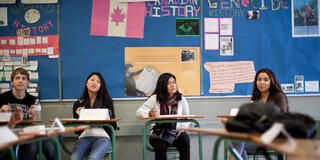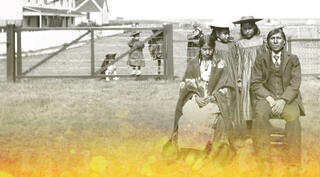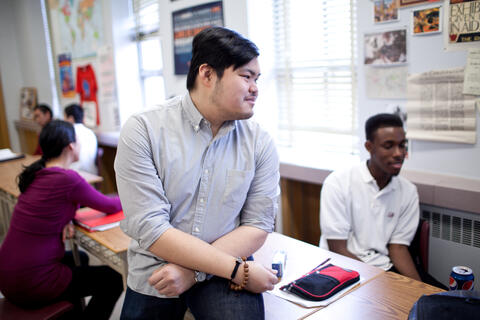
Facing History & Ourselves Canada
We provide educators with academically rigorous resources and proven student-centred strategies that focus on cultivating engaged and informed citizens, ensuring the realization of a more compassionate and inclusive society. We have been supporting middle and high school teachers and students in schools across Canada since 1981, and opened an office in 2008.

Teaching the History and Legacies of Canada’s Residential Schools
Stolen Lives: The Indigenous Peoples of Canada and the Indian Residential Schools supports learning about the history and legacies of Canada’s Residential Schools through primary sources and survivors’ personal testimonies. Using our unique approach, this resource invites readers to engage with stories of identity, belonging and history, that centre Indigenous voices.
Years of Proven Results
94%
Of Facing History students say that their class motivated them to learn.
81%
Of students felt they were more capable of recognizing racism, antisemitism, and prejudice after taking a Facing History class.
92%
Of Facing History teachers report that our program helps their students stand up for what they believe, even when others disagree.

Professional Learning and Events in Canada
Discover workshops and events that support educators and school leaders in Canada.
Years of Proven Results
1100+
There are over 1100 schools in Canada with Facing History trained educators.
16,000+
We have supported over 16,000 area educators with Facing History guidance and resources.
future generations look back, it’s going to be us they are going to talk about and the change that we’ve made.”
Student, Don Mills Collegiate Institute
Don't miss out!
- download classroom materials
- view on-demand professional learning
- and more...




